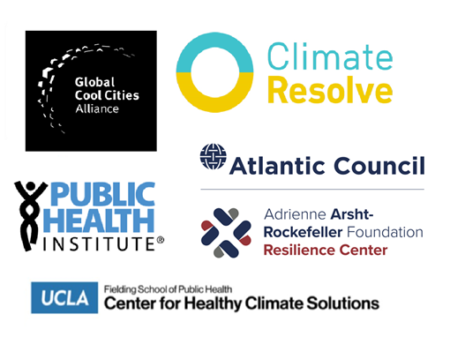
A group of organizations have sent an open letter to Speaker Pelosi and Majority Leader Schumer to highlight the opportunity ofncorporating heat resilience into the reconciliation legislation and their broader agenda. The letter lays out 9 recommendations for tackling extreme heat:
- Improve warning systems. Increasing awareness of the dangers from heat is the critical first step to protecting people. Deploy health-based warnings that clearly communicate the threat and are targeted to reach the most vulnerable populations.
- Adopt an all-of-government approach to addressing heat. Coordinate activities on heat across agencies to reduce risk and support local initiatives. Mandate a national comprehensive federal heat action plan that incorporates elements from all relevant departments.
- Support local government and community-based organizations to develop community resilience centers to build social cohesion and replace ineffective cooling centers.
- Establish an all-of-government procurement guideline to require consideration of impact on heat from all government purchases and contracts.
- Promote equity by ensuring that a minimum of 40% of resources benefit BIPOC communities and vulnerable populations. Support local tree canopy equity projects.
- Create jobs by prioritizing passive cooling strategies to install reflective surfaces on roofs, streets and walls, plant trees.
- Generate and disseminate accurate and timely data on the health impacts of heat waves.
- Capitalize on the power of nature and use nature-based solutions like urban tree planting and green roofs
- Exercise your oversight role and require regular reports on actions taken to reduce risk of extreme heat by the administration.
